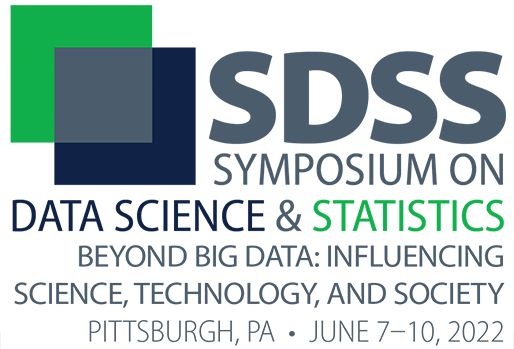Featured Speakers
Science and Technology Policy Panel

Robert Santos, US Census Bureau
Robert Santos is the 26th US Census Bureau director. Previously serving as vice president and chief methodologist at the Urban Institute and 2021 ASA president, his career spans more than 40 years in survey and policy research. Among his many roles and honors, Santos served as the 2014 president of the American Association of Public Opinion Research (AAPOR), is an ASA Fellow, and received the ASA Founder’s Award in 2006—the association’s highest recognition for distinguished service. He also is the 2021 recipient of the AAPOR Award for Exceptionally Distinguished Achievement.

Rachel Levy, North Carolina State University
Rachel Levy is professor of mathematics and executive director of the North Carolina State University Data Science Academy. She is a fellow of the Society for Industrial and Applied Mathematics and an MAA Alder National Teaching Award winner. Levy has served as an American Mathematical Society Congressional Fellow in the US Senate, deputy executive director of the Mathematical Association of America (MAA), vice president for the Society for Industrial and Applied Mathematics, and associate dean for faculty development at Harvey Mudd College. In each of these roles, she built partnerships between industry and academia. Levy created the blog Grandma Got STEM and edited the blogs MAA Teaching Tidbits and MAA MathValues. She also blogged for American Scientist. She has published texts on partial differential equations, mathematical modeling, and industry careers.

Matthew Heavner, US Department of Energy
Matthew Heavner is on assignment from Los Alamos National Lab (LANL) to the Department of Energy Arctic Energy Office. At LANL, he served in several roles, including a program manager focused on data science applied to critical national security and science questions, a project leader for the US Nuclear Detonation Detection System radio frequency sensors on the Global Positioning Satellite constellation, and a subject matter expert on atmospheric lightning and ionospheric propagation of signals. He also supported several technology demonstration and validation satellite missions. Additionally, Heavner served as the assistant director of global security at the White House Office of Science and Technology Policy and was a tenured professor of physics at the University of Alaska Southeast.
Career Panel

Rebecca Doerge, Carnegie Mellon University
Rebecca Doerge is the Glen de Vries Dean of the Mellon College of Science at Carnegie Mellon University. Her research program focuses on statistical bioinformatics, a component of bioinformatics that seeks to understand the ultimate function of DNA and epigenomic associations. Prior to joining both the statistics and biology departments at Carnegie Mellon, she was the Trent and Judith Anderson Distinguished Professor of Statistics at Purdue University. Doerge joined Purdue University in 1995 and held a joint appointment between the colleges of agriculture (department of agronomy) and science (department of statistics) until her departure. While at Purdue, Doerge received the Teaching for Tomorrow Award (1996), University Scholar Award (2001–2006), and Provost’s Award for Outstanding Graduate Faculty Mentor (2010). She is a fellow of the American Statistical Association (2007), an elected fellow of the American Association for the Advancement of Science (2007), and a fellow of the Committee on Institutional Cooperation (2009). She is also the chair-elect of the AAAS Section U and has published more than 130 scientific articles and two books and graduated 25 PhD students.

Lenny Lucas, Naval Nuclear Propulsion Program
Leonard Lucas earned a BS in mechanical engineering from Carnegie Mellon University in 2004, followed by a PhD in mechanical engineering from the California Institute of Technology in 2009. The Naval Propulsion Program (NNPP) sponsored his graduate work through the Rickover Fellowship Program. He has worked his entire career since then with the NNPP at the Bettis Atomic Power Laboratory in West Mifflin, Pennsylvania (just outside Pittsburgh). Lucas developed NNPP-specific structural mechanics tools before transitioning to a data science role in 2015. As an adviser scientist, he tackles various data science projects across the company and cultivates data-driven culture in the NNPP to benefit from future data analytics efforts.

Chris Volinsky, AT&T
Chris Volinsky is assistant vice president for data science and AI research in the AT&T Chief Data Office and an AT&T Science and Technology Fellow. Volinsky earned his PhD in statistics from the University of Washington in 1997. He leads a team of data scientists in solving business problems generated by a huge telecommunications and entertainment company. In 2009, he was a member of the seven-person, four-country team BellKor’s Pragmatic Chaos that won the $1 million Netflix Prize, an open data competition for improving Netflix’s online recommendation system.
